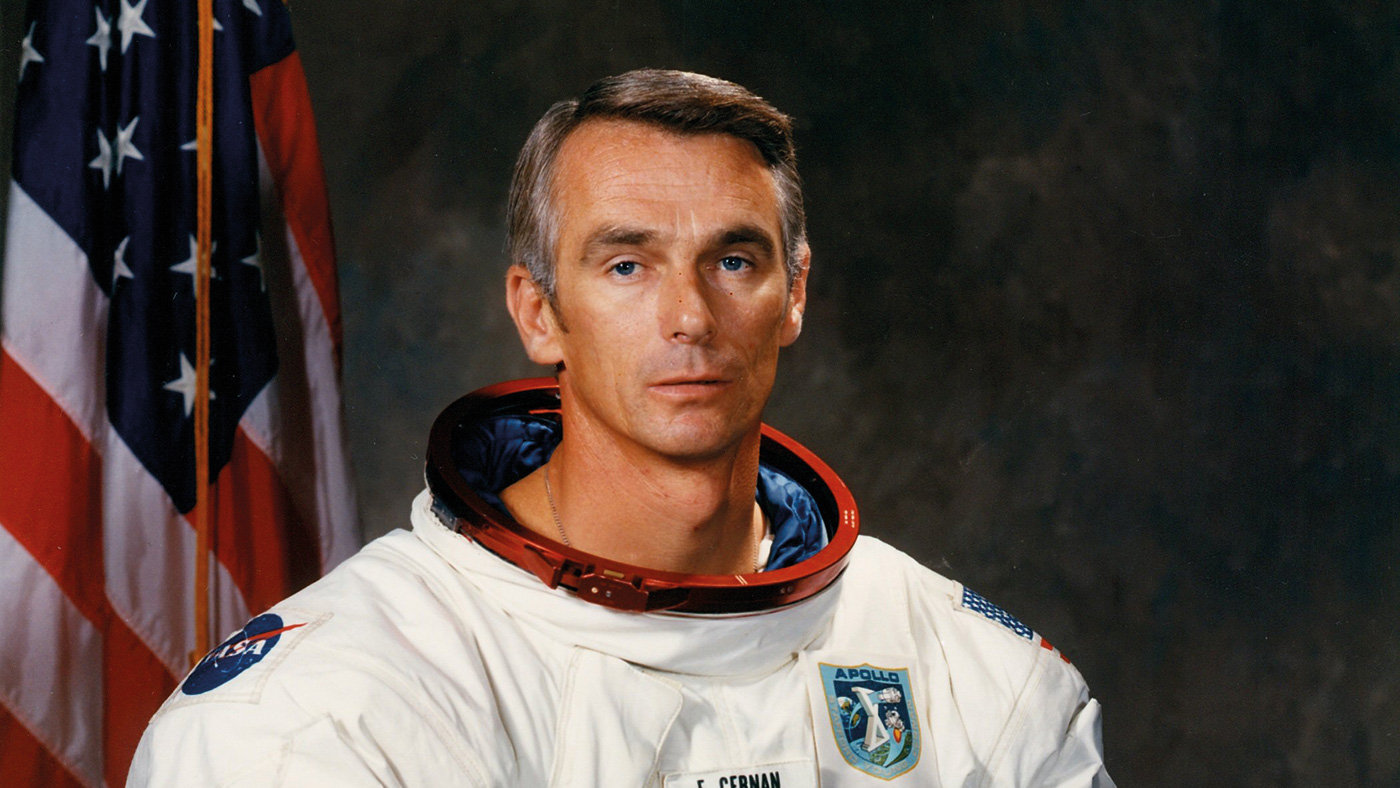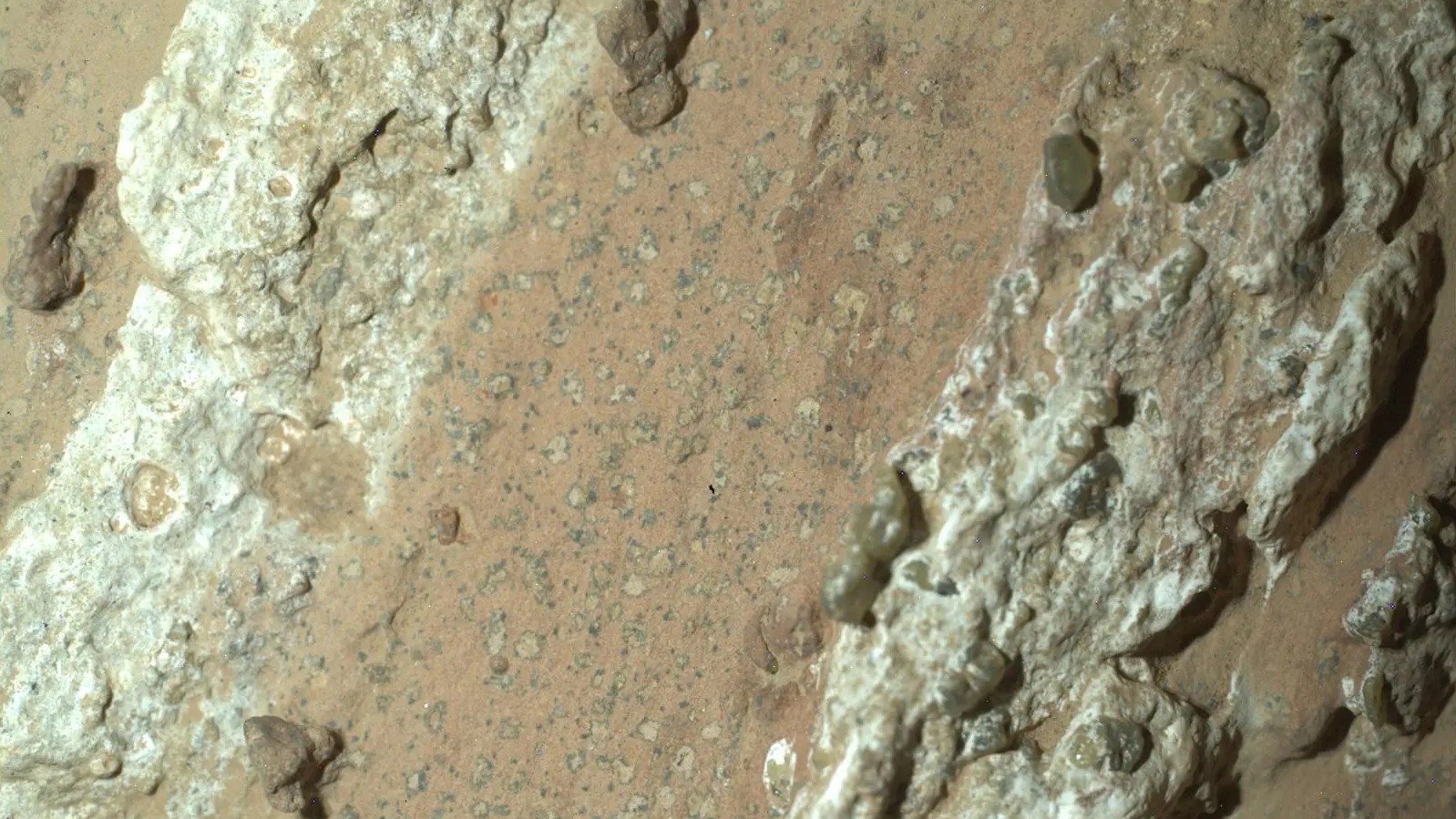The last man on the moon: Remembering Gene Cernan
A tribute to the late American astronaut and his outstanding accomplishments

A free daily email with the biggest news stories of the day – and the best features from TheWeek.com
You are now subscribed
Your newsletter sign-up was successful
When Eugene Cernan re-entered the lunar module Challenger in 1972, he cemented his place in history as the last man to set foot on the moon. With the sad news of his death, aged 82, we recall an interview with the US astronaut in which he shared his perceptions of time and space during this momentous and career-defining moment.
In space, time takes on new meaning – you can make whatever you want of it. Time is defined here by when the sun comes up and goes down. On Earth, you have certain things you do in the morning and certain things you do at night but in space, you have to coordinate your lifestyle to long periods of light and dark.
When we landed on the moon, the dust cleared and it was quiet – I was mesmerised when I looked through the window. When I left the spacecraft I found myself in a paradox: I was in sunshine surrounded by the blackness of space; the blackest black you can conceive. I'm not talking about darkness - darkness is when you're in the shade - think of an eclipse, That's darkness. Blackness is the endlessness of time, the endlessness of space. It's truly another world.
The Week
Escape your echo chamber. Get the facts behind the news, plus analysis from multiple perspectives.

Sign up for The Week's Free Newsletters
From our morning news briefing to a weekly Good News Newsletter, get the best of The Week delivered directly to your inbox.
From our morning news briefing to a weekly Good News Newsletter, get the best of The Week delivered directly to your inbox.
Looking back at the Earth, you see it in all its beauty and splendour. Most of us have only seen it through the painting of artists, or the words of poets and philosophers. But when you're actually there looking at it, it's not like the pictures you see of an image on a black background, it's three-dimensional. You see the multicolours of the Earth, the blue of the oceans, the whites of the snow and clouds. It doesn't roll through space, there's no strings holding it up, no falcon on which the globe on your desk turns on; it moves with purpose and order and every 12 hours you are looking at the other side of the world.
It's still incredibly overwhelming. No one can explain how it will feel. You can train a robot to walk on the moon but you can't fully train a human being. No training, no indoctrination, nothing can prepare you for the experience. I landed on the moon in simulators hundreds of times before I went; it helps, but it's not the real world.
You get out of the spacecraft and you're in one-sixth gravity. We can't simulate this on Earth; we have an airplane that can take you up in parabola for 25 seconds at zero gravity, but you just get a tingle of it. When you land on the moon, you're physically in that science-fiction world because you can jump and leap and it's very natural. Your body and brain re-accommodate very quickly.
When I climbed up the ladder the last time, I knew I wouldn't be coming back. I tried to look back down at my footprints and figure out the significance of what it meant to have been there, but I didn't have enough time. I wanted to press the freeze button in that simulator.
A free daily email with the biggest news stories of the day – and the best features from TheWeek.com
It's been four decades since I walked on the moon and it will probably be another four before we truly know its impact. We left the Earth, something people must have dreamt about for many thousands and thousands of years. We did it in our lifetime, it's happened – but what does it mean to your generation and those that follow?
It's the first step to answering those big questions: is there life out there? Where did we come from? Where are we going? I can't even think of the other questions that are yet to be answered, but we've made the first step. The time between when I left the moon and the next person steps onto the moon or goes to Mars is going to be very short – although to us it's going to seem long. After all, we measure geologic history in millions of years, so what's another 30 or 40 years?
GENE CERNAN was an astronaut and former Omega watches ambassador. On the Apollo 11 mission in 1972 he became the 11th, and most recent, man to walk on the moon; omegawatches.com. Photograph © NASA
-
 The ‘ravenous’ demand for Cornish minerals
The ‘ravenous’ demand for Cornish mineralsUnder the Radar Growing need for critical minerals to power tech has intensified ‘appetite’ for lithium, which could be a ‘huge boon’ for local economy
-
 Why are election experts taking Trump’s midterm threats seriously?
Why are election experts taking Trump’s midterm threats seriously?IN THE SPOTLIGHT As the president muses about polling place deployments and a centralized electoral system aimed at one-party control, lawmakers are taking this administration at its word
-
 ‘Restaurateurs have become millionaires’
‘Restaurateurs have become millionaires’Instant Opinion Opinion, comment and editorials of the day
-
 NASA’s lunar rocket is surrounded by safety concerns
NASA’s lunar rocket is surrounded by safety concernsThe Explainer The agency hopes to launch a new mission to the moon in the coming months
-
 Nasa’s new dark matter map
Nasa’s new dark matter mapUnder the Radar High-resolution images may help scientists understand the ‘gravitational scaffolding into which everything else falls and is built into galaxies’
-
 NASA discovered ‘resilient’ microbes in its cleanrooms
NASA discovered ‘resilient’ microbes in its cleanroomsUnder the radar The bacteria could contaminate space
-
 Artemis II: back to the Moon
Artemis II: back to the MoonThe Explainer Four astronauts will soon be blasting off into deep space – the first to do so in half a century
-
 The mysterious origin of a lemon-shaped exoplanet
The mysterious origin of a lemon-shaped exoplanetUnder the radar It may be made from a former star
-
 Blue Origin launches Mars probes in NASA debut
Blue Origin launches Mars probes in NASA debutSpeed Read The New Glenn rocket is carrying small twin spacecraft toward Mars as part of NASA’s Escapade mission
-
 NASA reveals ‘clearest sign of life’ on Mars yet
NASA reveals ‘clearest sign of life’ on Mars yetSpeed Read The evidence came in the form of a rock sample collected on the planet
-
 SpaceX breaks Starship losing streak in 10th test
SpaceX breaks Starship losing streak in 10th testspeed read The Starship rocket's test flight was largely successful, deploying eight dummy satellites during its hour in space